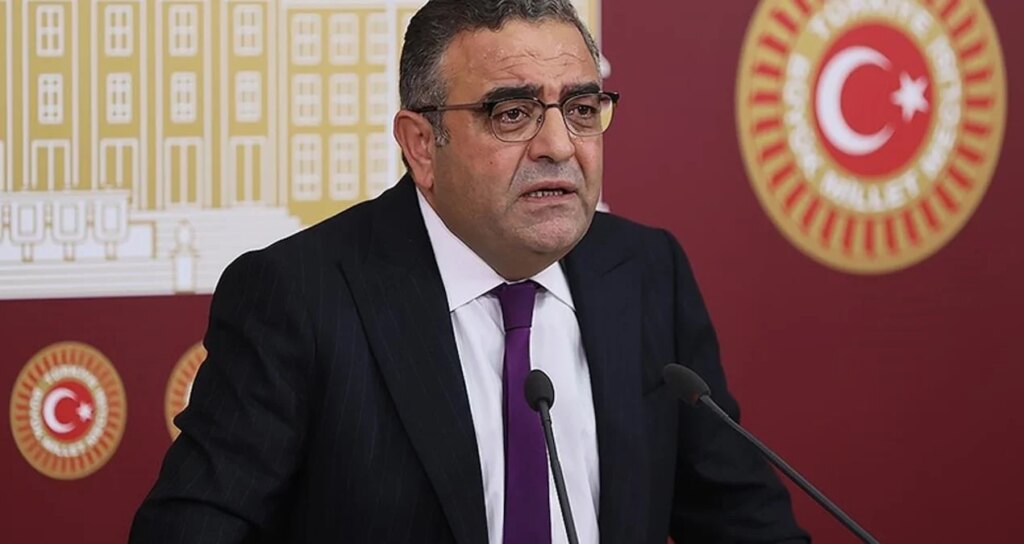Recent developments in Turkey’s legislative arena highlight ongoing tensions around judicial practices and governmental authority. The ruling parties, AKP and MHP, recently voted against a research proposal aimed at investigating allegations of discrimination and unlawful practices within the Turkish legal system. Opposition members, particularly from the Republican People’s Party (CHP), assert that the across-the-board failures in justice significantly erode public trust and call for legislative reform to alleviate judicial shortcomings.
| Article Subheadings |
|---|
| 1) Rejection of Judicial Investigation Proposal |
| 2) Insights from CHP Deputy Sezgin Tanrıkulu |
| 3) Controversy Surrounding Current Prosecutors |
| 4) Calls for Legislative Reform |
| 5) The Future of Turkish Justice System |
Rejection of Judicial Investigation Proposal
The Turkish Grand National Assembly faced a pivotal moment as the proposal to investigate potential discriminatory practices and the operational integrity of the legal system was rejected by votes from the ruling AKP and MHP deputies. This proposal, supported by the opposition, aimed to look into allegations of bias and malpractice within the justice system. The debate around this issue reflects broader concerns regarding the separation of powers and the independence of the judiciary in Turkey, where the majority ruling parties have historically wielded significant influence over legal affairs.
Insights from CHP Deputy Sezgin Tanrıkulu
During discussions about the rejected proposal, Sezgin Tanrıkulu, a CHP deputy from Diyarbakır, articulated concerns regarding public trust in the legal system. He referenced a seven-question inquiry posed to the Minister of Justice, whose response highlighted alarming perceptions of justice in Turkey. According to Tanrıkulu, the overwhelming sentiment among citizens is one of distrust, with data indicating that approximately 90% of the populace lacks faith in the law and its enforcement. He asserted that the portrayal of Turkey as a ‘state of law’ is at odds with the lived experiences of its people, calling for accountability and transparency in judicial practices.
Controversy Surrounding Current Prosecutors
The political landscape was further marred by the detention of Aykut Erdoğdu, another member of the parliament. The circumstances surrounding his case raise questions about the procedural integrity of the investigations assigned to various prosecutors. Allegations have surfaced regarding discrepancies in how cases are handled depending on political affiliation. For instance, while the Ankara Chief Public Prosecutor’s Office is responsible for certain cases, investigations seem to be misdirected, leading to implications of selective justice. Tanrıkulu emphasized the need for a transparent legal process, urging authorities to separate politically sensitive cases and to ensure fair treatment irrespective of one’s political stance.
Calls for Legislative Reform
In response to the ongoing issues within the judicial system, the new Path Party’s Ankara Deputy İdris Şahin voiced the urgent need for reform. He criticized the prolonged inaction regarding judicial practices that have historically favored political allies. He expressed the necessity for the forthcoming 11th Judicial Package to address key concerns affecting Turkish citizens rather than serving as a vehicle for continued bipartisanship. Emphasizing the importance of reinstating faith in the legal system, he called on lawmakers to prioritize the public’s trust and the rights of individuals over political agendas.
The Future of Turkish Justice System
As discussions unfold regarding potential reforms, it becomes increasingly clear that the future of Turkey’s judicial system hinges on the ability of lawmakers to navigate the choppy waters of political influence and public expectation. The competing narratives surrounding justice and fairness necessitate a re-evaluation of how the legal system operates and is perceived by the public. Only through collective action can Turkey hope to mend the fractures in its judicial processes, ensuring a system that safeguards the rule of law for all citizens, irrespective of their political affiliations.
| No. | Key Points |
|---|---|
| 1 | The proposal to investigate discrimination in Turkish courts was rejected by the ruling party. |
| 2 | Public trust in Turkey’s legal system is cited as alarmingly low, with 90% negative sentiment. |
| 3 | Recent controversies involve the detention of parliament members, raising concerns about selective justice. |
| 4 | Lawmakers are urged to initiate reforms for restoring public confidence in the judicial system. |
| 5 | The future of justice in Turkey relies on effective legislative responses to current challenges. |
Summary
The rejection of the judicial investigation proposal in Turkey showcases not only the contentious political landscape but also the urgent need for reforms within the legal system. The testimonies of opposition members serve to highlight systemic flaws that undermine the rule of law, thereby diminishing citizens’ faith in judicial processes. As authorities grapple with these pressing concerns, the path forward must prioritize transparency and accountability, ensuring that all individuals can have confidence in the legal framework of Turkey.
Frequently Asked Questions
Question: What were the goals of the rejected judicial proposal?
The proposal aimed to investigate potential discriminatory practices within Turkey’s legal system and assess the operational integrity of bilateral legal practices.
Question: Why is public trust in the legal system low in Turkey?
According to various reports, approximately 90% of citizens express distrust in the legal system, attributing this to perceived bias and selective enforcement depending on political affiliations.
Question: What are the implications of recent parliamentary detentions?
The detentions raise serious concerns about political influence over legal proceedings and can be perceived as a form of selective justice that undermines the fairness of the judicial system.


